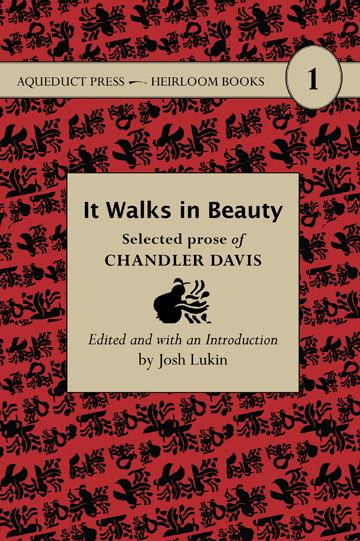Josh Lukin

Josh Lukin
Josh Lukin was born in Youngstown, Ohio, a Midwestern backwater
traditionally dominated by organized crime: called "Murdertown
USA" by the press in the early Sixties, Y-town became famous again in
2002 for having the first Congressman since Reconstruction to be sentenced
to prison for felonies while in office. While earning his degree from
Youngstown State University's excellent English Department, Josh sang
Yiddish traditional songs in a downtown speakeasy, reviewed plays for the
campus paper, and made his parents worry. Andrei Codrescu published two of
Josh's undergraduate essays—on Whitman and Wilde— in
Exquisite Corpse; their subjects, along with his expressions of love
for James Baldwin, led a young YSU prof to solicitously ask Josh, "Are
you a gay student?" Josh's next two published essays, for The
Comics Journal and Anarchist Studies, dealt with comic books;
but he was never asked whether he was a superhero student, so he switched
to writing about noir fiction in the hope that at least people would think
he was a student who's dangerous to know.
While a graduate student at SUNY-Buffalo, Josh was taught about good
manners by Reichian anarchist scholar Arthur Efron: "You don't have to keep
trying to prove that you're a smart person: you already got admitted to a
PhD program. And you don't have to be so competitive: life is not a game
of Jeopardy, and it would be very boring if it were." Armed with that
knowledge, he became friends with Samuel Delany and consequently developed
an interest in studying science fiction; he also began work in disability
studies, thanks to celebrity professor Michael Bérubé: Michael invited Josh
to speak on a disability studies panel, and Josh thought it would be
impolitic to explain that that was not his field. In 2003 Josh completed
his dissertation, on shame and class in the work of Patricia Highsmith,
Philip Dick, and Jim Thompson, and earned his PhD; since then, he has
taught at Temple University, a public university in inner city Philadelphia
that serves a very diverse student population, as a contingent employee of
the First Year Writing Program and member of the Temple Association of
University Professionals (AFT). He also belongs to the Interdisciplinary
Faculty Committee on Disability.
In addition to teaching freshman writing and the occasional literature
course at Temple, Josh has given many intramural presentations, on such
topics as "Salvation and Decay in Colson Whitehead," "Narrative Prosthesis
in Raymond Chandler Films," and "Disability in The Souls of Black Folk."
In 2008, The University Press of Mississippi published his anthology,
Invisible Suburbs: Recovering Protest Fiction in the 1950s United
States; he has also published work in minnesota review, The
New York Review of Science Fiction, Paradoxa: Studies in World
Literary Genres, and The Encyclopedia of American Disability
History. He enjoys attending concerts and plays, buying books,
napping, and spending time with his family: his wife, disability studies
maven Ann Keefer, and her cats, Edgar Allen Poo Keefer and Hawthorne
Divagrrl Princess Fluffikins Javacat Tiptree Keefer. The Book That Changed
His Life is H. Bruce Franklin's Robert A. Heinlein: America as Science
Fiction, which he read at fifteen; the Concerts He'll Never Forget include
a 1991 outdoor performance by Hazlewood (Grace Griffith and Susan Graham
White) near Baltimore's twilit Inner Harbor, where they sang Kim and Reggie
Harris's "Heaven Is Less Than Fair."

|